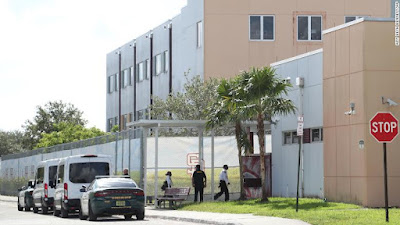by Terri Kirby Erickson
 |
| Sunday school at a Baptist church in Kentucky, 1946 |
which may be too late for some, is the most
optimal time to inform girls that post-birth
females are not fully autonomous human
beings. No adverse circumstances or plans
or dreams or medical emergencies trump
your legal and moral responsibility to give
birth should any male, whether by force or
consent, plant his seed in the fertile ground
of a uterus that becomes, immediately upon
conception, the sole property of The State.
The Board, comprised of five men and two
wholly compliant women, strives to remain
sympathetic to how hard it must be for you
to accept this news, having been so revered
before birth and deceived into believing you
have the same rights and post-delivery value
as boys and men. Let us assure you today,
that you do not. Indeed, should you become
pregnant and experience a life-threatening
situation, the continuation of a fetal heart-
beat is all that matters. Furthermore, there
are many government agencies dedicated to
ensuring that, under penalty of death or life
in prison for all involved, no pregnancy is
unlawfully terminated. No questions? Then
you are, as will often be the case, dismissed.
Terri Kirby Erickson is the author of six collections of poetry, including A Sun Inside My Chest (Press 53), winner of an International Book Award for Poetry. Her work has appeared in “American Life in Poetry,” Asheville Poetry Review, JAMA,Poet’s Market, Quarterly Literary Review Singapore (QLRS), The SUN, The Writer’s Almanac, Third Wednesday, and many more. Other awards include the Joy Harjo Poetry Prize and a Nautilus Silver Book Award.

















